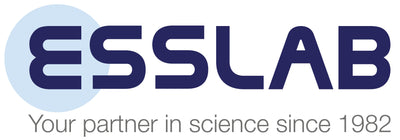
Competence and best practices play key roles in ensuring the accuracy and precision of piston-operated volumetric apparatus (POVA) use, particularly with air-displacement pipettes. These devices are fundamental tools in laboratories for precise liquid handling, where even minor deviations can significantly impact experimental outcomes.
Pipette selection

The selection of the most appropriate pipette is paramount. Pipette suitability depends on various factors, including the intended application, liquid properties, and performance requirements. It is recommended to select an adjustable volume pipette with a maximum volume closely aligned with the intended delivery volume(s) to optimise volumetric performance. This selection process emphasises the need for users to fully understand the correct use of different types of pipettes.
Pipetting techniques and skills
User's technique is the most significant influence on volumetric accuracy and reproducibility. Even subtle deviations in pipetting technique can yield significant errors in delivered volumes. Consequently, user training programs are imperative to develop pipetting skills to ensure proper techniques. Potential sources of error are thus minimised. Regular user competency assessments are also useful to ensure adherence to best practices for consistent reliability in volume delivery.
Solvent considerations
Pipetting non-aqueous liquids introduces additional complexities. Positive displacement pipettes are often used due to the relatively high vapour pressure of solvents, which causes dripping from the tip. However, air-displacement pipettes may be successfully used, providing specialised techniques such as tip pre-rinsing and reverse pipetting are used. Technical skills in these techniques through appropriate training and regular assessments are indispensable for users tasked with handling diverse liquid matrices.
Training documentation
Documentation is now seen as an essential part in establishing traceability in pipette usage required for laboratories’ accreditation. Detailed records of user training, competency assessments, and equipment qualification are tangible evidence of adherence to established standard operating procedures (SOP’s). Calibration reports detailing test plans, environmental factors and inaccuracy and imprecision results provide invaluable insights into the efficacy of user training initiatives. Moreover, these reports ensure traceability and enable informed decision-making regarding pipette selection and calibration protocols.
User qualification procedures
User qualification and re-qualification procedures are essential mainstay in preserving proficiency levels for laboratory personnel. By setting appropriate competency and training requirements, laboratories ensure that users possess the required pipetting skills. Regular practical assessments, typically conducted at least annually, serve as litmus tests for user proficiency and to develop subsequent training initiatives. The frequency and content of competency assessments should be matched to the risks associated with specific laboratory activities.
These training and user competency procedures, documented in ISO 8655-10 2024, ensure the continued reliability of volumetric measurements.
Conclusion:
The data generated by laboratories from analytical measurements made depends principally on the competence of the analysts responsible for the sample processing. Proper training, user assessment, documentation, and pipette qualification procedures play crucial roles in achieving these goals.
How can we help?

ESSLAB’s CPD accredited Pipetting Academy Workshops cover much more than the new requirements in ISO 8655-10:2024, but also guidance on pipetting “challenging” liquids such as viscous & foaming liquids.
The workshop concludes with an often highly competitive pipetting test using a 5 decimal place balance and Pipette Wizard calibration software to find out who is the top performer in the lab. The winner receives a prize – and all participants receive a CPD accredited certificate.
Our range of Pipetting Academy workshops provide comprehensive training for all pipette users and for individuals responsible for regular pipette service and calibration.

Workshops can be customised for all your applications, find out more here!

Leave a comment